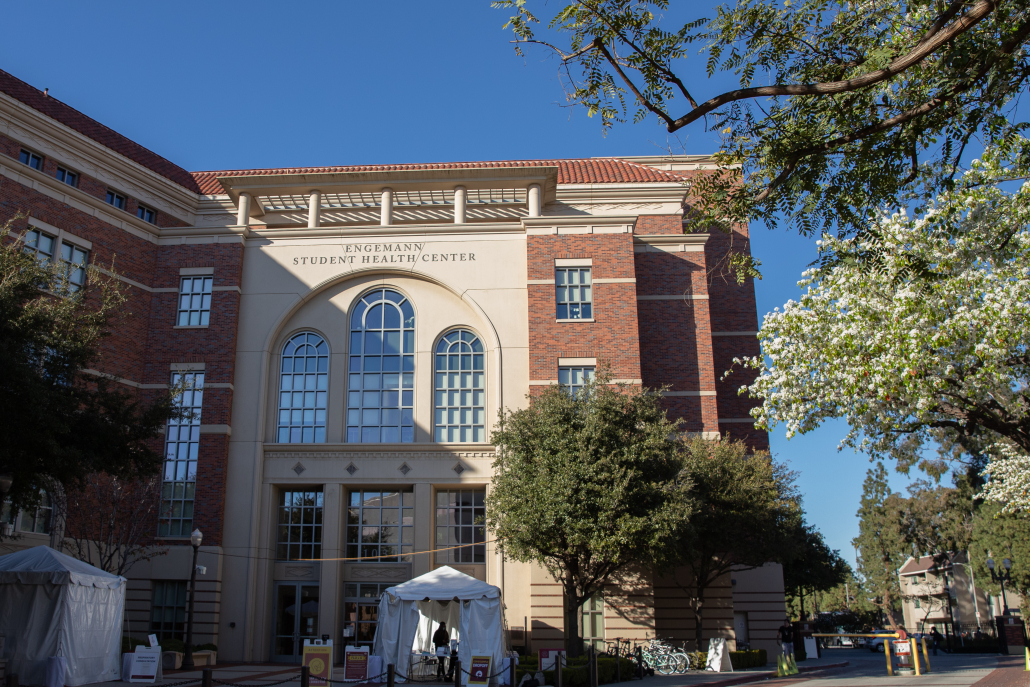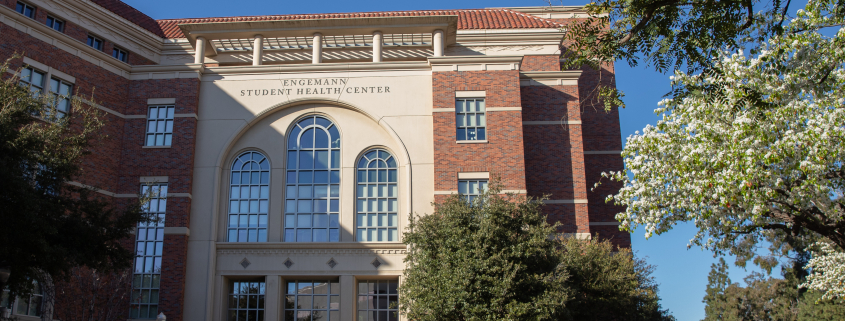University lifts campus coronavirus restrictions

The University will lift coronavirus restrictions, including vaccination and self-testing requirements and remove testing tents from the campus entrances, Chief Student Health Officer Dr. Sarah Van Orman said in a briefing with the Daily Trojan Tuesday.
The updated policy, which will take effect May 19, comes as pandemic-related emergency declarations end in California and Los Angeles. Previously required vaccinations — including the primary coronavirus vaccination series and boosters — will now be “strongly recommended” for students who are in non-health degree programs.
The University will permanently shut down testing tents located at Jefferson Boulevard Structure and Pappas Quad, and students will be able to pick up free antigen test kits at student health centers, University bookstores and Customer Service Centers at USC Housing buildings.
Individuals who test positive for coronavirus and enter isolation will no longer be required to provide a negative antigen test after five days to leave isolation. However, the negative test result still remains strongly recommended, and. individuals will have to show improved symptoms and no fever for 24 hours without the aid of fever-reducing medication before leaving isolation.
Individual health-related academic programs will communicate health requirements to students and faculty in these programs on a case-by-case basis.
“[The policy changes] are similar to what we’ve been discussing,” said Van Orman, referencing previous announcements that lifted vaccination and University isolation requirements.
Ahead of Gov. Gavin Newsom’s announcement that California will begin stockpiling emergency misoprostol abortion pills, Van Orman also highlighted reproductive health services available to students through Student Health.
Services include contraceptive counseling, contraceptive provision and abortion medication.
“Students are only responsible for the cost of the medication itself, which is less than $100,” Van Orman said. “For most students, the cost is very, very low at Student Health compared to [other] options.”
If needed, Van Orman said, Student Health will also work with students who might need surgical termination services.
“We really remain committed to providing students with a range of reproductive health services in a really challenging political time,” Van Orman said. “We know that students may not have access to those services when they’re not on campus … It’s really important that we do whatever we can while they’re here in California to make sure they have the care that they need.”
Relationship and Sexual Violence Prevention Services also provides educational programing to raise awareness of reproductive health services and provides clinicians who support students who experience gender based harm or sexual assault.
Workshops centered around raising awareness are taking place throughout April in honor of Sexual Assault Awareness month. RSVP also hosts a program that works to educate men undergraduates to talk about issues surrounding gender based harm.

